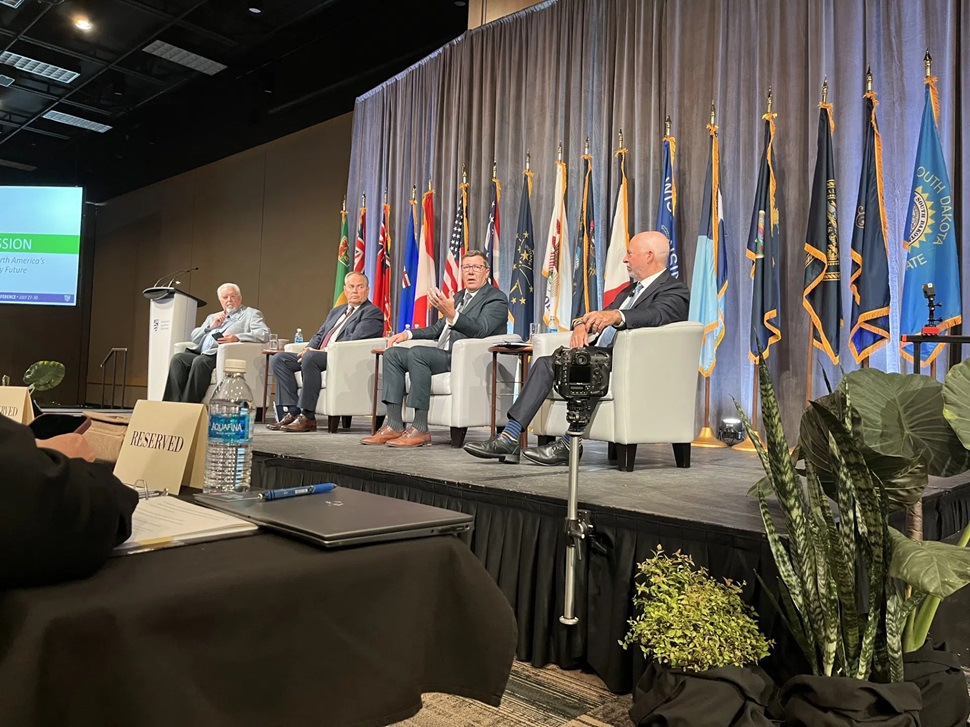The ‘control panel’ of nuclear energy in Saskatchewan sat before a multinational crowd at TCU place Tuesday morning.
Premier Scott Moe, Cameco CEO Tim Gitzel, and Westinghouse President John Gorman spoke during the Fueling North America’s Energy Future session of the 79th Annual Midwestern Legislative Conference. Because the conference involves senators and government representatives from 11 states and four provinces, Moe highlighted the importance of collaboration between the U.S. and Canada; and specifically, Saskatchewan with its uranium deposits.
“Where I always start my thinking from is our general security. How do you do that? You ensure that your energy is secure, and you’re not depending on unallied nations or unfriendly nations around the world for your energy security. Right here lies the greatest opportunity, as Canadians and Americans, to really determine our own future.”
Moe adds that Saskatchewan aims to build nuclear reactors, greenfield, in about 14 years. Gitzel gave some perspective on how important it is that the two countries cooperate and coordinate with each other, especially considering their current relations.
“Out of the 11 states that are here, eight of you have nuclear powerplants. You have about 24 per cent of the nuclear electricity, 24 plants, and we supply all of you. I checked all the contracts, and we’re supplying all of your different states with uranium from right here in Saskatchewan.”
Gorman agreed that nuclear energy is being embraced like never before, especially within the last two to three years.
“When I was with the Canadian Nuclear Association, even four years ago, we couldn’t find a federal minister to say the word nuclear behind a microphone. That’s the truth,” he explains.
He credits Saskatchewan and Premier Moe with pushing for energy security and the use of critical minerals, which helped bring about the widespread shift in attitude. The trio assured the crowd of Canadian and American leadership that to maintain an advantage over the scale and speed that China is rolling out nuclear reactors, it will be imperative that Canada and the U.S. cooperate.
“Canada wants to be an energy superpower. The U.S. wants energy dominance. That holds true for nuclear. Neither nation can do this alone. We have all of the tools that we need. Let’s go through this incredible collaboration, coordination for economic and security benefit between Canada and the U.S., and we’ll be able to dominate globally.”
The convention continued into Wednesday with sessions on housing, AI, education, and agriculture.
